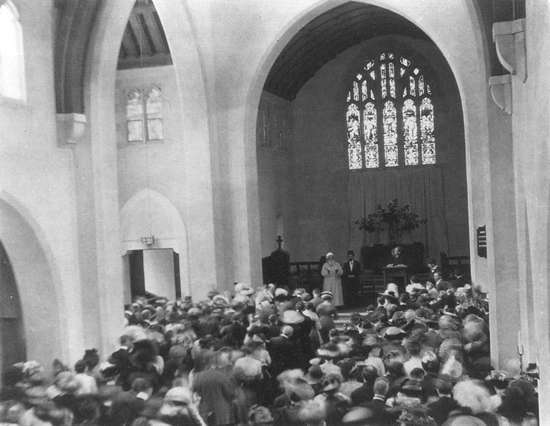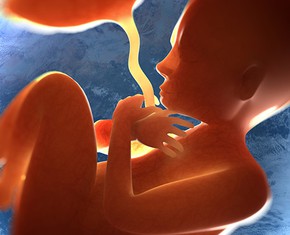The views expressed in our content reflect individual perspectives and do not represent the authoritative views of the Baha'i Faith.
Everyone wants to avoid life’s falling rocks—but all of us have to walk that mountain path where rocks balance dangerously above our heads.
In life, falling rocks are unavoidable. You can’t dodge every one of them—nor would you want to. The Baha’i writings, such as prayers asking for tests, come under the broad aegis of the axiom stated in Baha’u’llah’s Hidden Word that goes like this:
If adversity befall thee not in My path, how canst thou walk in the ways of them that are content with My pleasure? If trials afflict thee not in thy longing to meet Me, how wilt thou attain the light in thy love for My beauty? – The Hidden Words, p. 15.
Of course, it is well worth noting that these trials and tribulations have value in our spiritual progress primarily when they result from our attempting to follow the Baha’i path and when we recognize in these tests an opportunity to advance ourselves spiritually.
Furthermore, it is likewise important to realize at all times that one of the bounties in following this path where the rocks tumble, is the omnipresence of roadside assistance, so long as we think to ask for it. In addition, Baha’u’llah has provided a comprehensive manual for any and all misfortunes, whether physical or metaphysical. Also, at intervals along the path are rest stops in the form of pilgrimages and schools for periods of inspiration, meditation, and reflection. Finally, and most important of all, that Baha’i guide for the path endorses a series of daily preventative measures to avoid external or internal damage—daily prayers, spiritual study, and teaching others.
Of course we might logically inquire about how we are to recognize the falling rocks that are divinely sent for our advancement, versus those falling rocks that simply represent some of the changes and chances that occur intermittently in every life. The simplest and most effective response to this concern is that we never know for sure, not in this stage of our life. Therefore, the Baha’i writings assert, we might as well proceed as if all tests are specifically designed to sharpen our driving skills and help us recover from the rocks that do hit us. If we respond in this manner, then all tests will benefit us, whether they are the result of explicit divine intervention in our lives, or simply the luck of the road.
As far as my own journey has gone, I have greatly benefitted from certain interludes where I could complete a sequence of developmental exercises—like those stations on a Par Course where, as one jogs along, one stops at some well-designed apparatus constructed to work on specific muscle groups.
But before I recount what have been for me the most outstanding among these, let me first explain why of a sudden I feel it imperative that I go about this present process of preparing for death. After all, if, as I have noted, this life is but preparation for the continuation of our life that ensues after our departure from the physical stage of our existence, then the art of living the Baha’i life is also the art of dying. The two are synonymous and inseparable. That is, a natural and logical result of trying to “live the Baha’i life” is that we become ever more detached from the bonds and ties of attachment to our insistent self. In short, the “Baha’i life” as set forth by Baha’u’llah is strategically designed to train us for transition to the next stage of existence—all by showing us the value of an exemplar.
On any path, finding a guide is essential, someone to lead the way and demonstrate how to navigate difficult terrain. As a Christian I was taught that the exemplar for my path was Christ. And while, as I have noted, I always found Christ a comforting confidant and sensed His presence in my life, I never considered him an appropriate exemplar for me because whenever I attempted to pit myself against that perfection, I would inevitably feel defeated from the start. I would give up soon after starting out, no how many times I tried a do-over.
The exemplar for the Baha’i path is Abdu’l-Baha, a mortal human being who took it upon himself to take care of the tactical and strategic affairs of the Baha’i community. Then, after his father Baha’u’llah’s death in 1892, Abdu’l-Baha discovered that Baha’u’llah in his will had designated Abdu’l-Baha as head of the Baha’i Faith, as Center of the Covenant, as well as the perfect Exemplar of the Baha’i life. Not too long thereafter, Abdu’l-Baha began to welcome western Baha’i pilgrims to visit him.

Abdu’l-Baha in Chicago
In 1912-1913, Abdu’l-Baha undertook a remarkable journey to Europe and then to America, where he spent 239 days traveling from New York to San Francisco and back. During the course of this memorable sojourn, Abdu’l-Baha met with high and low alike, but the focus of his travels was to meet with the Baha’i communities across the breadth of the country. Wherever he went, spoke about the glad tidings of the new revelation. These remarkable talks, recorded in several volumes, were sometimes formal and erudite, sometimes simple and to the heart. He appeared before gatherings as diverse as a mission in the Bowery of New York or the esteemed Unity Church in Oak Park, Illinois.
So the art of living the Baha’i Life, of following this meandering path, can be inferred by studying what Abdu’l-Baha said in these talks, and from studying his spirit in motion. In every account of him interacting with others there is a parable, a lesson to be learned. In every glance and gesture was unveiled a glimpse of perfect wisdom. All who met him—and I talked with several over the years—were so transformed by this encounter that for the remainder of their lives they could talk of little else. This was the source of everything they would accomplish, the spiritual fountain from which they imbibe the essential inspiration for their life’s work. This was the transformative power that emanated from Abdu’l-Baha.
So were I to reflect on my “milestones” that have occurred in the decades since I came of age and became a Baha’i, let alone attempt any sort of evaluation of how I did during what I suppose should be the core of my life experience, I would be no less at a loss for words than I was as a child pitting myself against the standard set by Christ. The standard established by Abdu’l-Baha is so refined, so lofty and rarified, that I can only hope I am yet a work in progress, even if the Chamber of Commerce might portray my present circumstance as a retiree experiencing his “Golden Years.”
















Comments
Sign in or create an account
Continue with Googleor